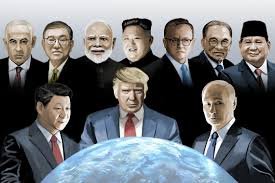Introduction
World leaders hold the power to influence the direction of humanity. Their decisions impact not only their nations but also the entire global community — shaping economies, climate policies, security alliances, and diplomatic relations. From presidents and prime ministers to monarchs and heads of international organizations, these individuals play a crucial role in addressing the challenges of the 21st century.
In an era defined by globalization, technology, and conflict, understanding world leaders — their policies, ideologies, and leadership styles — is key to understanding the world itself.
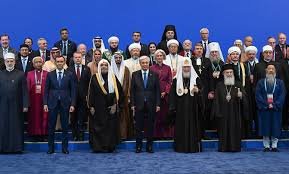
🌐 The Role of World Leaders in Global Politics
A world leader’s role extends far beyond national borders. In today’s interconnected world, leaders must balance domestic priorities with global responsibilities such as:
- Maintaining international peace
- Combating climate change
- Managing global trade and economic relations
- Promoting human rights and equality
- Addressing migration and humanitarian crises
🏛️ Types of World Leaders
1. Presidents
Presidents are the heads of state in republics. They often hold both ceremonial and executive powers.
- Example: Joe Biden (United States), Emmanuel Macron (France), Volodymyr Zelenskyy (Ukraine)
2. Prime Ministers
Prime Ministers are usually the heads of government in parliamentary systems, responsible for running the executive branch.
- Example: Rishi Sunak (United Kingdom), Justin Trudeau (Canada), Fumio Kishida (Japan)
3. Monarchs
Monarchs hold positions of power through hereditary rule. Some are symbolic figureheads, while others retain significant authority.
- Example: King Charles III (United Kingdom), King Salman bin Abdulaziz (Saudi Arabia), Emperor Naruhito (Japan)
4. Chancellors, Emirs, and Presidents-for-Life
Certain nations have unique leadership titles, blending political and cultural traditions.
- Example: Olaf Scholz (Germany – Chancellor), Sheikh Mohammed bin Zayed (UAE – President), Xi Jinping (China – President)
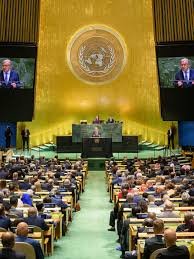
🕊️ Influential World Leaders of the 21st Century
1. Joe Biden – President of the United States
As the leader of one of the world’s most powerful democracies, Joe Biden focuses on rebuilding alliances, supporting Ukraine, strengthening NATO, and tackling climate change. His leadership emphasizes diplomacy, democracy, and global cooperation.
2. Xi Jinping – President of China
Xi Jinping has transformed China into a global superpower. Under his leadership, China has expanded its influence through the Belt and Road Initiative, technological advancements, and assertive foreign policy. His leadership style is centralized, strategic, and focused on China’s long-term dominance.
3. Vladimir Putin – President of Russia
Vladimir Putin has dominated Russian politics for over two decades. Known for his strongman image, Putin’s leadership is marked by nationalism, control, and military assertiveness — most notably seen in Russia’s invasion of Ukraine and its impact on global geopolitics.
4. Volodymyr Zelenskyy – President of Ukraine
Once a comedian, now a global symbol of resistance, Zelenskyy rose to prominence for his courageous leadership during the Russia-Ukraine conflict. His communication skills and resilience have united the Ukrainian people and gained international respect.
5. Rishi Sunak – Prime Minister of the United Kingdom
Rishi Sunak represents a new generation of leadership in the UK. Focused on economic stability, digital transformation, and foreign relations, Sunak faces challenges such as post-Brexit trade and domestic inflation.
6. Emmanuel Macron – President of France
Macron’s leadership is characterized by a centrist, pro-European approach. He has played a significant role in promoting European unity, defense autonomy, and global diplomacy.
7. Narendra Modi – Prime Minister of India
Narendra Modi has redefined India’s global presence with his vision of “Make in India” and digital empowerment. Under his leadership, India has become a major voice in global politics, balancing relations with the US, Russia, and China while leading initiatives on renewable energy and space exploration.
8. Olaf Scholz – Chancellor of Germany
Following Angela Merkel, Scholz has focused on maintaining Germany’s economic strength while managing the challenges of the European energy crisis and supporting Ukraine against Russian aggression.
9. Justin Trudeau – Prime Minister of Canada
Known for his progressive policies, Trudeau champions diversity, environmental responsibility, and inclusive governance. His leadership continues to position Canada as a model for liberal democracy.
10. Crown Prince Mohammed bin Salman (MBS) – Saudi Arabia
MBS is leading Saudi Arabia’s transformation through Vision 2030, diversifying the economy beyond oil and modernizing society. His ambitious reforms, combined with geopolitical influence, make him one of the most powerful leaders in the Middle East.
🌏 Leadership Styles and Their Impact
World leaders adopt different leadership styles that define their governance and influence.
- Authoritarian Leaders: Centralized power, limited opposition (e.g., Xi Jinping, Vladimir Putin)
- Democratic Leaders: Elected by citizens, transparent governance (e.g., Joe Biden, Rishi Sunak)
- Transformational Leaders: Inspire major reforms and innovation (e.g., Narendra Modi, Emmanuel Macron)
- Diplomatic Leaders: Focus on peace and negotiation (e.g., Olaf Scholz, Justin Trudeau)
A leader’s style often determines how their country interacts with the global community — through cooperation, competition, or confrontation.
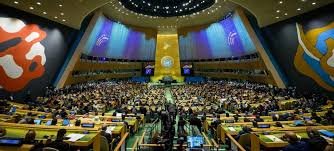
💬 Challenges Facing World Leaders Today
The 21st century presents complex issues that no nation can face alone.
Major challenges include:
- Climate Change: Reducing emissions and transitioning to clean energy.
- Global Conflicts: Managing wars, terrorism, and nuclear threats.
- Economic Instability: Inflation, inequality, and trade wars.
- Technological Disruption: AI, cybersecurity, and privacy concerns.
- Public Trust: Rebuilding faith in governments and institutions.
World leaders must navigate these issues with vision, adaptability, and collaboration.
🌱 The Future of Global Leadership
Tomorrow’s world leaders will be shaped by digital transformation, social awareness, and environmental responsibility.
We are entering an era of youth empowerment, female leadership, and inclusive governance, where empathy and sustainability will be as important as economic growth.
Emerging leaders from Africa, Asia, and Latin America are expected to play a larger role in defining global cooperation and innovation in the coming decades.
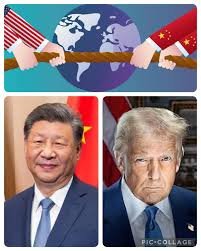
🏁 Conclusion
World leaders are the architects of our collective destiny. Their decisions ripple across borders, affecting lives, economies, and the planet itself. As the world faces unprecedented challenges — from wars to climate change — the need for ethical, visionary, and united leadership has never been greater.
Whether through diplomacy, innovation, or reform, the next generation of world leaders will determine the direction of global peace and progress for years to come.
